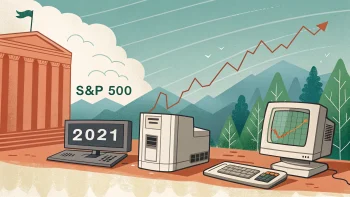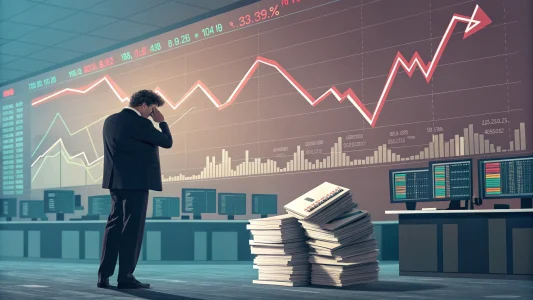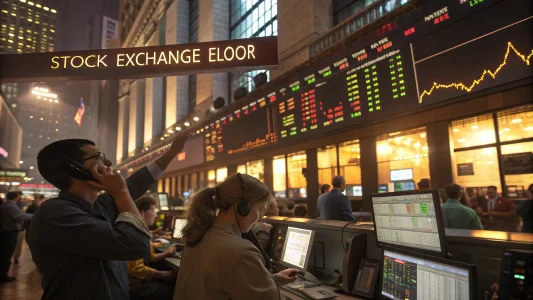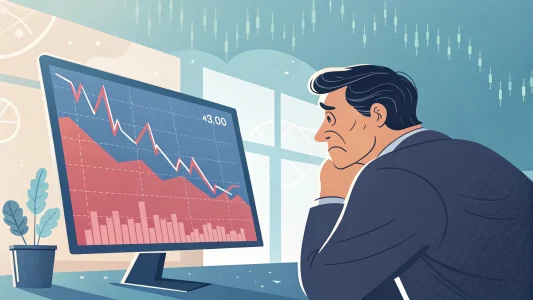The ongoing conflict between Israel and Hamas has sparked concerns about the potential escalation of violence in the Middle East. Analyzing historical parallels, three potential scenarios emerge, each with distinct implications for the global economy and political landscape. This article will explore each scenario in-depth, discussing the potential triggers, impact on the countries involved, and wide-ranging consequences.
Understanding these possible outcomes is vital to forming a coherent response and mitigating the devastating effects of war.
View this post on Instagram
A post shared by Taylor Sohns- CFP®, CIMA®, MBA- Finance (@lifegoalinvestments)
Table of Contents
Toggle1. Israel and Gaza Continue to Fight
The first scenario sees the conflict remaining localized, with Israel and Hamas continuing their exchanges of fire. The 2014 conflict offers a precedent for such a situation, wherein the kidnapping and murder of three Israelis in Gaza prompted an Israeli invasion, which ultimately claimed more than 2,000 lives.
Economically, Bloomberg predicts that this scenario would have a modest global impact. Oil prices would rise by approximately $4 per barrel, global GDP would drop by 0.1%, and global inflation would increase by 0.1%. In this case, the conflict would likely be contained within the immediate region, minimizing adverse effects on the world economy.
2. Iran-Backed Hezbollah Enters the Conflict
The second scenario involves Iranian-backed militant group Hezbollah entering the fray. Primarily based in Syria and Lebanon – Israel’s neighbors – Hezbollah has threatened to launch military attacks if Israel does not cease its offensive in Gaza. Iran’s financial support of Hezbollah and its potential engagement represents a proxy war between Iran and Israel, similar to the 2006 conflict between Israel and Hezbollah on the Lebanese border.
Israel would face a two-front war in this situation, with Hezbollah in the north and Hamas in the south. The entrance of Iran and Hezbollah into the conflict would likely lead to severe sanctions on Iranian oil. Analysts believe that oil prices could rise by $8 per barrel, global GDP could fall by 0.3%, and inflation could increase by 0.2%. While more severe than the first scenario, this outcome remains somewhat contained within the Middle East.
3. A Direct War Between Israel and Iran
The third scenario is a worst-case outcome: direct war between Israel and Iran. This large-scale conflict would invariably drag in other nations, including the United States, an ally of Israel, and China and Russia, with their ties to Iran. Such a war’s implications are difficult to predict and potentially catastrophic.
The 1970s Israel-Arab war presents a historical parallel, where the US backed Israel, resulting in an oil embargo by Arab nations that quadrupled gas prices and caused a period of inflation and recession. Bloomberg estimates that a direct conflict could cause oil prices to rise by $64 per barrel, global GDP to fall by 1%, and global inflation to soar by 1.2%.
Conclusion
The above scenarios highlight the fragile interdependence of geopolitical events and economic stability. The escalating Israeli-Hamas conflict puts the world at risk of severe consequences that have not been felt since the 1970s. Iran’s participation in the conflict serves as the linchpin, determining the severity of the outcomes.
For global economic stability and countless lives, the hope is that cooler heads will prevail and that the world will not witness another widespread and destructive conflict. It is crucial to stay informed on the developments within the ongoing Israeli-Hamas war and the impact it could have on the global economy.
Frequently Asked Questions (FAQ)
1. What is the ongoing conflict between Israel and Hamas about?
The ongoing conflict between Israel and Hamas primarily revolves around longstanding political and territorial disputes, with both sides making territorial claims in the Middle East, particularly in Gaza and the West Bank. Historical tensions and a lack of a peaceful resolution further fuel the situation.
2. Why is this conflict of concern to the global community?
The Israeli-Hamas conflict is of global concern due to its potential for escalation. The Middle East has historically been a region where conflicts can quickly spill over into international crises. As such, any escalation could impact regional stability global oil prices and have political implications for the countries involved.
3. What are the three scenarios mentioned in the article?
The article outlines three potential scenarios:
- Scenario One: Israel and Gaza Continue to Fight, with the conflict remaining localized.
- Scenario Two: Iran-Backed Hezbollah Enters the Conflict, adding a new dimension to the conflict by involving a powerful militant group.
- Scenario Three: A Direct War Between Israel and Iran, representing the most severe outcome with far-reaching consequences.
4. How would these scenarios impact the global economy?
The economic impact varies with each scenario. In Scenario One, global consequences are modest, with a slight rise in oil prices, a minimal drop in global GDP, and a small increase in global inflation. In Scenario Two, a more significant impact is expected, with higher oil prices, a larger GDP drop, and increased inflation. In Scenario Three, a direct war between Israel and Iran could have catastrophic consequences, including a substantial increase in oil prices, a significant global GDP decrease, and soaring inflation.
5. Are there historical parallels to these scenarios?
Yes, historical parallels are referenced in the article. For instance, the 2014 conflict in Scenario One is reminiscent of a past conflict between Israel and Hamas. Scenario Two parallels the 2006 conflict between Israel and Hezbollah on the Lebanese border. Scenario Three alludes to the 1970s Israel-Arab war and its consequences.
6. What can be done to mitigate the potential consequences of these scenarios?
Mitigating the consequences involves diplomatic efforts, conflict resolution, and international cooperation. Global leaders and organizations need to work toward de-escalation and peaceful solutions and monitor and intervene in the event of rising tensions to prevent further deterioration of the situation.
7. How can I stay informed about developments in the Israeli-Hamas conflict and its impact on the global economy?
Staying informed can be achieved through reliable news sources, international organizations, and government updates. Following news outlets with international correspondents and experts in the field will provide regular updates on the situation. Additionally, governmental sources and international organizations may release statements and reports about the conflict and its repercussions.

















